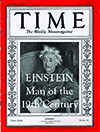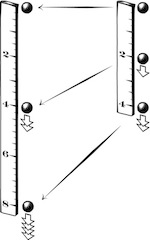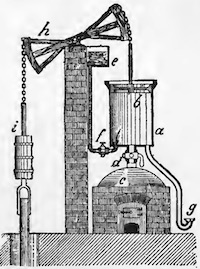|
John D. Norton
More in History of Science
|
|
home >> research
>> More in History of Science |
 |
Modern writers often endow Einstein with a 21st century prescience
about physical theory that, it just so happens, is only now
vindicated by the latest results of the same writers' research.
There is a second side to Einstein. His outlook and methods were
clearly rooted in 19th century physics and a sense in which his work
fulfills the discoveries of the 19th century. |
"Einstein as
the Greatest of the Nineteenth Century Physicists," pp. 142-51
in Proceedings,
Seventh Quadrennial Fellows Conference of the Center for
Philosophy of Science (12-14 June 2012; Mugla, Turkey). |
 |
Galileo's refutation of the speed-distance law of fall in his Two
New Sciences is routinely dismissed as a moment of confused
argumentation. We urge that Galileo's argument correctly identified
why the speed-distance law is untenable, failing only in its very
last step. Using an ingenious combination of scaling and
self-similarity arguments, Galileo found correctly that bodies,
falling from rest according to this law, fall all distances in equal
times. What he failed to recognize in the last step is that this
time is infinite, the result of an exponential dependence of
distance on time. Instead, Galileo conflated it with the other
motion that satisfies this 'equal time' property, instantaneous
motion. |
"Galileo's Refutation of the Speed-Distance Law of
Fall Rehabilitated," (with Bryan Roberts) Centaurus.54
(2012) pp. 148-164. Download.
"The Scaling of Speeds and Distances in Galileo's Two New
Sciences: A Reply to Palmerino and Laird," (with Bryan
Roberts) Centaurus, 54 (2012) pp. 182-191. Download. |
 |
In 1824, Sadi Carnot proposed the strange, internally
contradictory notion of a thermodynamically reversible process as
the most efficient in the context of dissipative heat engines. They
are analogous to the reversible geometrical movements that his
father, Lazare, had earlier found to be the most efficient in
ordinary, mechanically dissipative machines. |
"How Analogy Helped Create the New Science of
Thermodynamics"
Download draft. |
|
|


